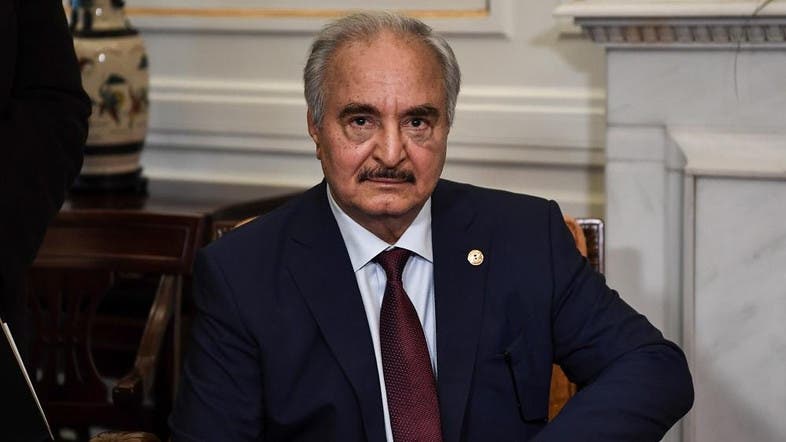Libyan rivals and their foreign backers will attend a summit in Berlin on Sunday to discuss ways to end a proxy war over the capital Tripoli and the oil producer, which has displaced 140,000 and now more than halved the country’s crude output.
Germany and the United Nations hope to persuade Russia, Turkey, the United Arab Emirates, and Egypt to push their opposing camps to agree on a lasting truce in Tripoli, home to the UN-recognized government.
As with previous failed attempts, center stage of the one-day meeting will be occupied by Libyan National Army (LNA) commander Khalifa Haftar, who in April started a campaign to take Tripoli.
Western powers hope this time to put pressure on him to continue a ceasefire that has largely held for one week.
Haftar on Monday walked out on a Russo-Turkish summit, in contrast with his rival Fayez al-Sarraj, the UN-recognized prime minister, who signed a lasting truce proposal put forward to both leaders.
The one-day summit, which will also bring together US Secretary of States Mike Pompeo and European and Arab leaders, will not attempt to broker a power-sharing agreement between Haftar and the UN-recognized Government of National Accord (GNA).
Instead, the focus is on a lasting ceasefire to restart talks.
Oil blockade
The LNA shut down eastern oil ports on Friday, cutting oil production by 800,000 barrels a day. That will hit hard Tripoli, which benefits most from oil revenues.
Qatar condemned the storming of Libya’s eastern Zueitina oil export port.
A draft of the summit’s final communique called on all parties to refrain from hostilities against oil facilities.
The draft also recognizes Tripoli-based state oil company NOC as the sole legitimate entity allowed to sell Libyan oil, according to the draft, which will be discussed at the summit.
Greece and Turkey
Haftar flew to Athens on Thursday for a surprise visit as Greece seeks to build ties with the Libyan commander after the UN-recognized government in Tripoli signed security and maritime deals with Turkey.
Athens is fiercely opposed to the contentious maritime deal between Ankara and Tripoli, which claims much of the Mediterranean for energy exploration, conflicting with rival claims by Greece and Cyprus.
Turkey has strongly supported the Government of National Accord (GNA) led by Fayez al-Sarraj, and its parliament approved a motion to send troops to Libya earlier this month.
Greece sought to take part in the talks in Berlin, but was not invited.
Turkey on Saturday lashed out at Greece for hosting Haftar, saying that the move would “sabotage” peace efforts on the eve of an international summit in Berlin.







































admin in: How the Muslim Brotherhood betrayed Saudi Arabia?
Great article with insight ...
https://www.viagrapascherfr.com/achat-sildenafil-pfizer-tarif/ in: Cross-region cooperation between anti-terrorism agencies needed
Hello there, just became aware of your blog through Google, and found ...